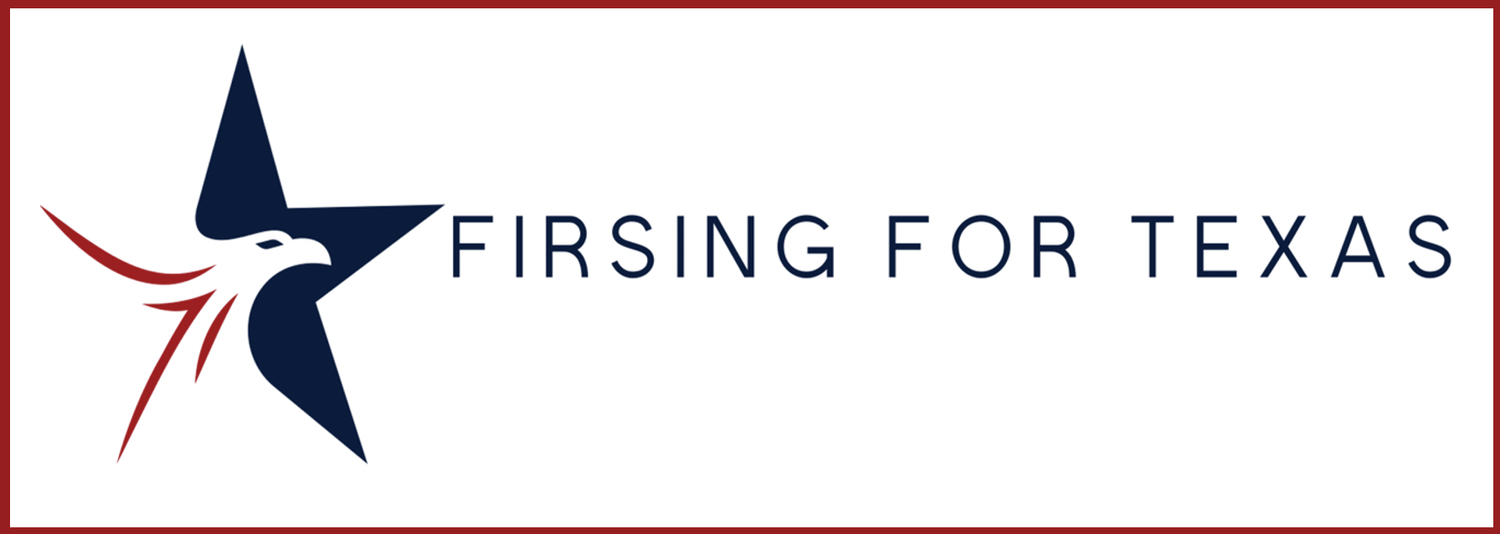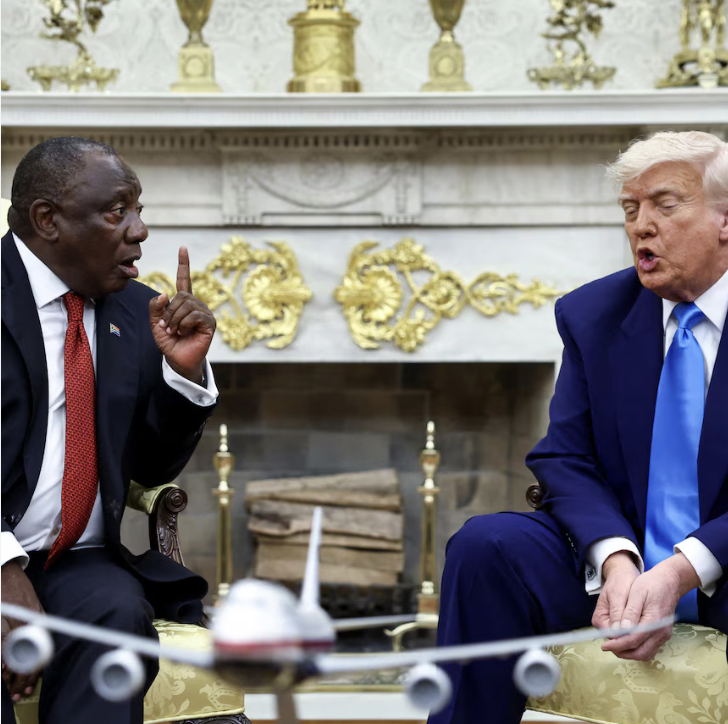Absent America: The G20 Summit and the Unraveling of U.S.–South Africa Relations
US President Donald Trump meets South African President Cyril Ramaphosa in the Oval Office.(Reuters: Kevin Lamarque)
13 November 2025- From refugee visas and ambassador expulsions to tariffs and trade wars, 2025 has been a political and diplomatic earthquake for Washington and Pretoria. As the G20 convenes in Johannesburg on 22-23 November with America expected to be absent, the question is no longer whether the bilateral relations can improve, but whether they can survive.
The Year That Was
The year’s descent began in February, when the Trump Administration issued Executive Order 14204, freezing nearly all U.S. aid to South Africa—worth over $400 million annually—over claims of “unjust racial discrimination” against white Afrikaners under a new land expropriation law, as well as Pretoria’s ICJ genocide case against Israel. Concurrently, Washington launched a refugee-visa program prioritizing Afrikaners fleeing alleged persecution, a move Pretoria dismissed as rooted in misinformation and propaganda.
Tensions boiled over diplomatically in mid-March. On 14 March 2025, the U.S. declared South Africa’s ambassador to Washington, Ebrahim Rasool, persona non grata and gave him until 18 March to leave, after he described Trump’s movement as mobilizing a “supremacist instinct” and “white victimhood.” Secretary of State Marco Rubio didn’t mix his words on X, calling Rasool a “race-baiting politician who hates America and POTUS.” Pretoria condemned the move as “regrettable” but retaliated by recalling its envoy from Washington, plunging bilateral ties to a new low.
Despite the acrimony, President Cyril Ramaphosa pressed for reconciliation with a White House visit on 21 May 2025—a carefully staged Oval Office meeting intended to reset relations. The encounter started amicably, with Trump gifting Ramaphosa a book on golf and Ramaphosa bringing South African golfers Ernie Els and Retief Goosen. But it quickly soured when Trump ambushed his guest with videos alleging a “genocide” against white farmers. Ramaphosa firmly denied the claims, emphasizing that most violent crime victims in South Africa are Black, but the meeting yielded no breakthroughs on aid or trade.
By July, economic pressures mounted further. On 07 July 2025, the U.S. announced 30% reciprocal tariffs on all South African exports, effective 1 August. South Africa, which accounts for just 0.25% of U.S. imports, Ramaphosa protested the measure as a blow to jobs and growth, while accelerating negotiations on a bilateral framework deal submitted in May.
That same month, the House Foreign Affairs Committee advanced H.R. 2633—the U.S.–South Africa Bilateral Relations Review Act—by a 34–13 vote. Introduced in April, the bill requires the administration to certify annually whether Pretoria’s actions “undermine U.S. national security or foreign-policy interests” and mandates a report identifying ANC officials eligible for possible sanctions. Though not yet law, it shows many in Washington want to hold South Africa accountable for alignment with America’s adversaries.
Diplomatic tensions continued in mid-July 2025 at the Emergency Conference of States in Bogota to discuss the situation in Gaza. Co-chaired by South Africa, 12 Global South nations including South Africa, Bolivia, Cuba, Indonesia and Namibia committed to imposing an arms embargo on Israel, demanding an immediate ceasefire in Gaza, suspending trade/airspace access for arms shipments, and resurrecting legal actions accusing Israel of “genocide” and war crimes. The U.S. criticized the initiative as undermining peace efforts, while Pretoria accused Washington of enabling Israeli impunity. Meanwhile, President Donald Trump raised his concerns on the economic front, warning that any nations aligning with BRICS to bypass the U.S. dollar were “declaring economic war on America” and threatened 100% tariffs—targeting South Africa’s recently expanded yuan-denominated energy imports and broader de-dollarisation efforts.
Despite the rhetoric, trade negotiators have kept working. Ramaphosa announced in September that U.S.–South Africa trade talks are now “based on text,” meaning both sides are reviewing a formal draft. The draft reportedly includes a U.S.$1 billion LNG import framework, linking American energy exports to South Africa’s decarbonisation strategy. Simultaneously, the U.S. is mulling a one-year extension of AGOA, which expired at the end of September, preserving duty-free access for South African exports until 2026.
New Flashpoints Before the G20
Unfortunately recent weeks has seen U.S.-South Africa relations enter another storm. To start, a classified SANDF base upgrade was revealed involving Chinese technicians, heightening American concerns about Beijing’s military foothold in South Africa. This news was followed up with Trump in a speech telling supporters that South Africa should not be in the G20 and Trump on social media promising that: “the United States will stand with South Africa’s farmers who face slaughter,” repeating genocide claims and announcing new trade restrictions.
The statements crystallized the Administration’s fury at the ANC.
Moreover, both Trump and Rubio confirming that no U.S. delegation will attend the G20, canceling Vice President J.D. Vance’s planned trip, is a remarkable diplomatic snub. Rather than mere hesitation, Washington’s total absence is a message in itself: that engagement with Pretoria, for now, is politically untenable. For South Africa, it is a symbolic blow—the first time in the G20’s history that a member state has hosted without an American presence. For Washington, it marks a hard pivot away from forums where Beijing and Moscow are increasingly influential.
G20 Summit – African and Domestic Politics
The absence also raises broader questions about U.S. strategy in Africa. Washington quietly notched diplomatic wins elsewhere on the continent, brokering peace between the DRC and Rwanda with Angola’s support. The decision to now withdraw from Johannesburg signals a preference for bilateral containment over multilateral engagement. Meanwhile, China and Russia are expected to use the summit to expand their African ties and to re-frame global economic architecture away from the U.S. dollar.
Domestically, Ramaphosa’s future remains uncertain. Though expected to step down as ANC leader at the party’s 2027 elective conference, a succession battle is already under way. A leadership shift could have far-reaching foreign-policy implications, potentially pushing South Africa even closer to Beijing and Moscow.
If both Washington and Pretoria still seek redemption, their window has narrowed too almost none. The Johannesburg summit, once touted as a moment for reset if future Republican presidential hopeful J.D. Vance attended, now symbolizes rupture. As the U.S. prepares to host the 2026 G20 in Miami, the absence this year could set the tone for two very different visions of world order on either side of the Atlantic and the equator.
After a 2025 defined by diplomatic, economic, and ideological confrontation, U.S.–South Africa relations now stand at a historic breaking point. The G20 Summit will not decide whether they cooperate, it will reveal how deep the divide has become.

